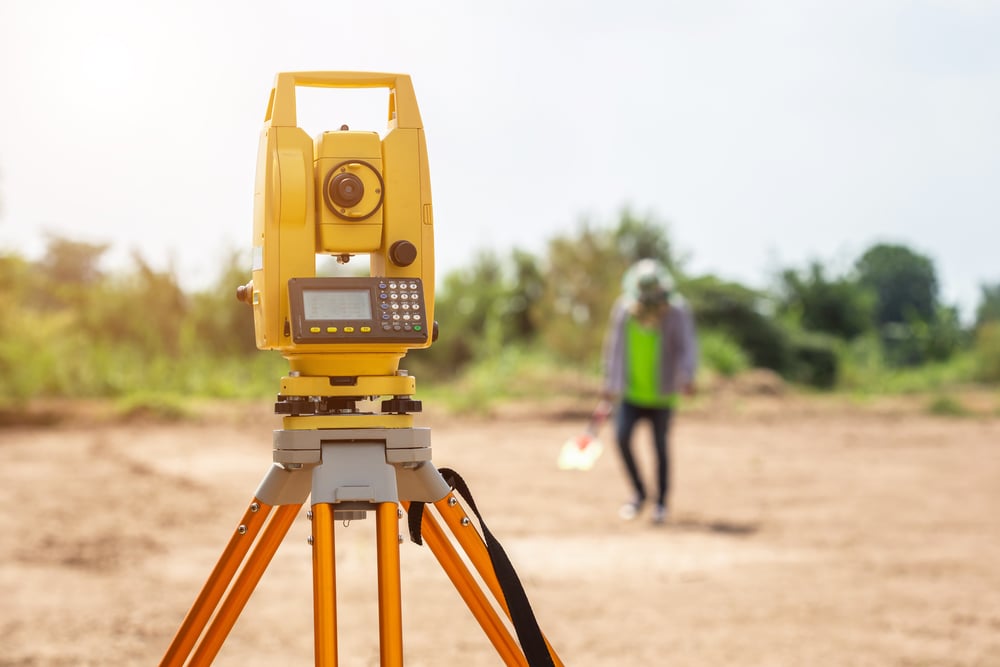In a world where
land is a sought after property, comprehending the intricacies of land checking becomes critical for home owners. The significance of land evaluating can not be overemphasized, as it works as the structure for property borders, lawful disagreements, and overall home worth. By delving right into the kinds of land surveys available, homeowner gain a much deeper understanding of their options and just how each study can profit their specific demands.
Moreover, land surveying is not nearly dimensions and limits; it plays an important duty in stopping lawful conflicts, supporting construction tasks, and helping in ecological planning. As modern technology remains to revolutionize land surveying strategies, the area is evolving with tools like drones and GIS systems developing brand-new opportunities for exact data collection and analysis. Whether exploring historical conservation sites or starting metropolitan advancement tasks, the partnership in between residential property proprietors and surveyor makes sure that every element of land possession is secured and optimized for long-term value.

Understanding Land Surveying Basics
Land surveying is a critical procedure that includes accurately gauging and mapping the physical attributes of an item of land. It plays an important duty in property possession and advancement by determining borders, elevations, and other crucial aspects that impact land use.
With the usage of specialized devices and equipment, land surveyors have the ability to gather specific information regarding the location and qualities of a property. Click here for more assists home owners, developers, and federal government firms make educated decisions concerning building, land use preparation, and ecological management.
By recognizing the essentials of land surveying, home owners can ensure that their passions are secured and that they remain in compliance with local policies. From figuring out building limits to recognizing potential hazards, a land survey provides useful details that can stop conflicts and assist in successful land development tasks.
Advancements in Land Surveying
In the dynamic area of land surveying, technical developments continue to drive development and improve the accuracy and performance of surveys. https://k12.instructure.com/eportfolios/515170/Home/_Why_Land_Checking_Is_Essential_for_Building_Projects_ is the assimilation of drone technology, which allows property surveyors to capture high-resolution airborne imagery of the land promptly and cost-effectively. Drones equipped with innovative cameras and sensors can give detailed topographic data, identify potential hazards, and simplify the evaluating procedure.
In addition, making use of Geographic Information Systems (GIS) has revolutionized how land property surveyors handle and analyze spatial information. GIS software allows specialists to overlay numerous layers of info, such as residential or commercial property borders, elevation versions, and land use categories. By leveraging GIS tools, property surveyors can develop comprehensive maps, envision intricate connections, and make educated decisions based upon spatial evaluation.
Another interesting advancement in land surveying is the fostering of 3D laser scanning modern technology. This innovative method permits surveyors to record detailed, three-dimensional depictions of land features with extraordinary precision. By using laser scanners, surveyors can promptly collect substantial amounts of data, including building structures, surface shapes, and plants patterns. The resulting factor cloud data helps with accurate measurements, spatial analysis, and virtual modeling for a vast array of surveying applications.
Land Surveying for Different Property Types
For houses, land surveying is crucial to make certain exact building borders, stopping disagreements with next-door neighbors, and preparing for future developments or improvements. A thorough land study can also uncover any kind of easements or encroachments that might affect the building's use and value.
When it concerns commercial residential or commercial properties, land evaluating plays a crucial function in site planning and development. Recognizing the topography, limits, and energy areas is important for designers, engineers, and building contractors to develop and build structures that abide by zoning laws and ecological factors to consider.
When it comes to farming and rural residential properties, land surveying is necessary for appropriate land monitoring, determining borders for cropping, grazing, or conservation objectives. In-depth studies can additionally help farmers and landowners make informed decisions regarding irrigation, drain, and general land use for sustainable practices.
